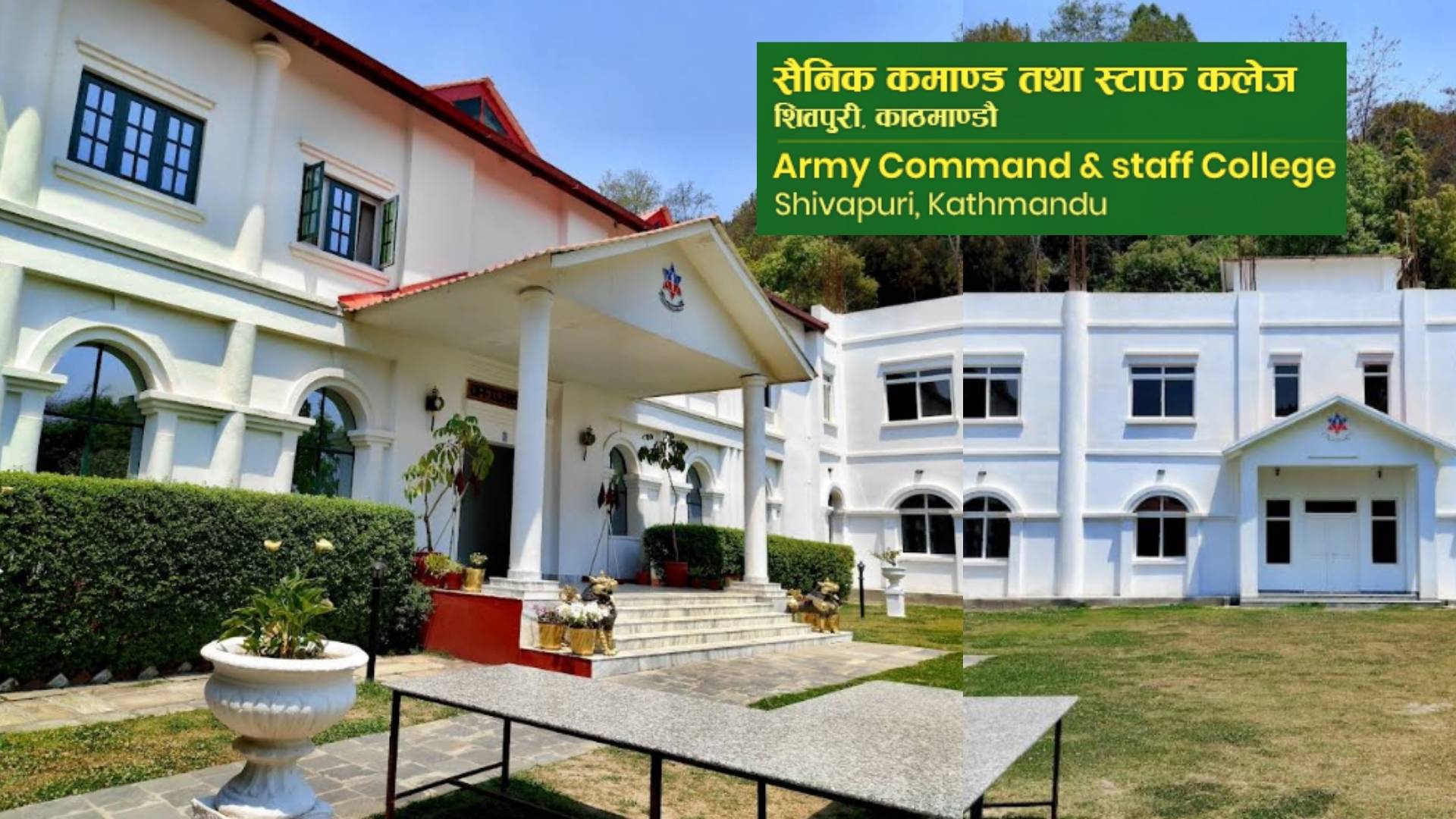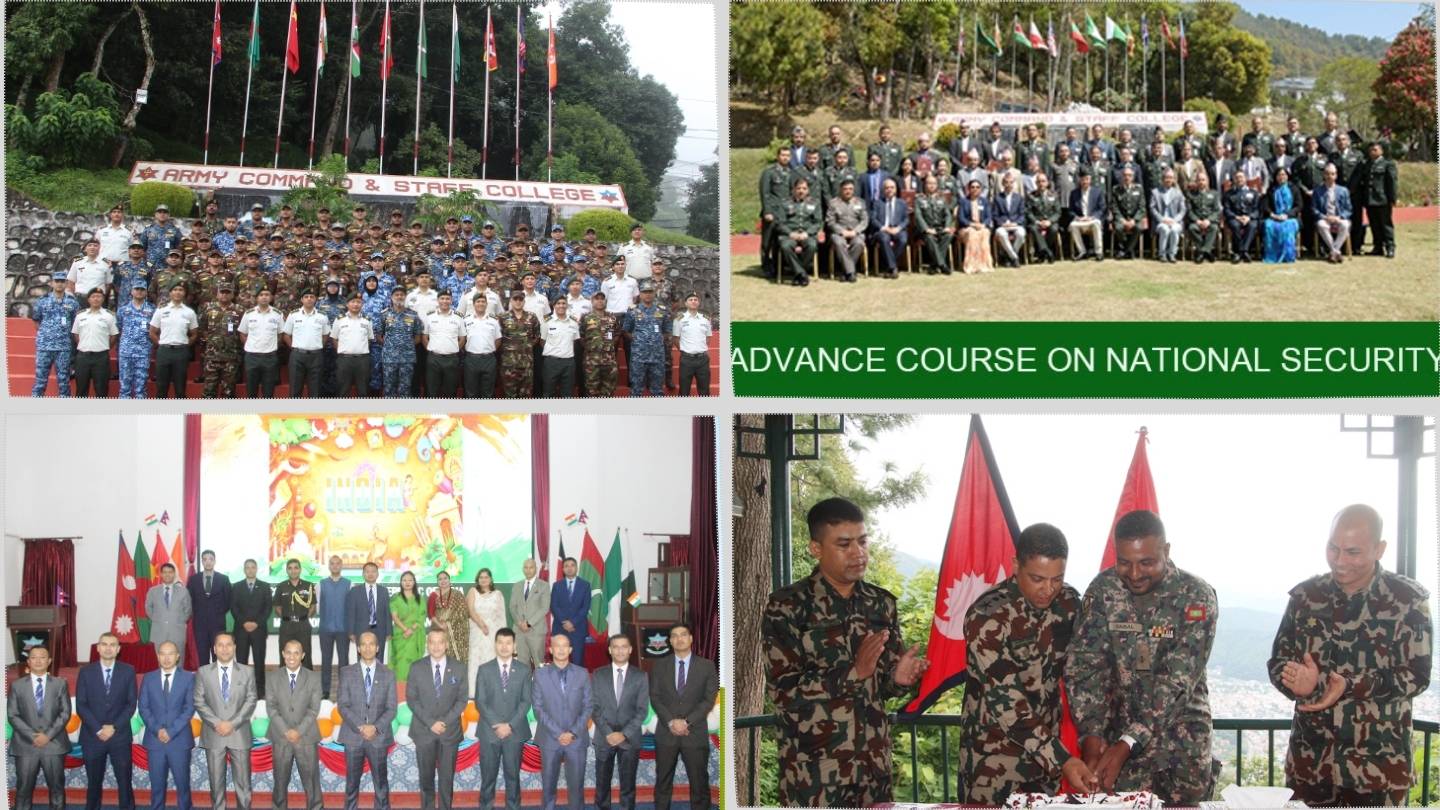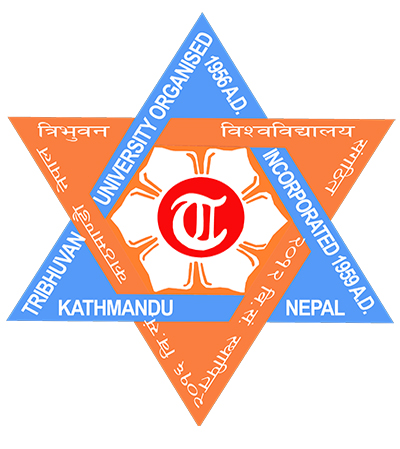Overview
Master’s in Strategic Studies (MSS) — Army Command and Staff College, Shivapuri
Master’s in Strategic Studies (MSS) at the Army Command and Staff College (ACSC), Shivapuri, is a Tribhuvan University–affiliated graduate program based in Kathmandu, Nepal.
The course spans two academic years across four semesters and totals 60 credit hours. Instruction runs in English and follows the Faculty of Humanities and Social Sciences (TU) assessment standards.
The program serves officers and civilians who want structured training in strategy, security affairs, operational planning, information operations, and research methods. The College integrates classroom study, syndicate work, war-gaming, and field-based exercises to build judgment and clear writing suitable for staff roles and policy analysis.

Highlights
-
Affiliation: Tribhuvan University (Faculty of Humanities & Social Sciences)
-
Duration and Load: Two years; four semesters; 60 credits; 1 credit = 16 class hours
-
Attendance: Minimum 80% per course (medical cases may receive limited consideration at 70% with authorized documents)
-
Internal and Final Exams: Internal assessment 40% + end-semester 60%; minimum 50% in each component
-
Grading: Absolute GPA scale; minimum per course B- (2.7); semester target CGPA ≥ 3.0 (B)
-
Research: Policy/strategy paper and a final thesis (3 credits)
-
Medium: English; device registration and ICT credentials provided on campus
-
International/Interagency Track: First semester exam scheduled after enrollment; remaining semesters proceed with the national cohort
Curriculum Details
ACSC follows a clearly structured semester plan. Course codes and titles reflect the TU-approved scheme. Short descriptions below help you map expectations to skills and tasks.
Semester I (15 credits)
-
Stra-551 Military History & Strategic Thought (3 cr.)
Students study classical and modern thinkers and examine case studies on campaigns and statecraft. Reading and seminar tasks train you to connect theory with Nepal’s security setting and regional realities. -
Stra-552 Contemporary Security Affairs (3 cr.)
Content covers national, regional, and global security issues. Topics include state and non-state actors, alliance behavior, borders, and resource pressures. Class discussions link readings to current events and policy briefs. -
Stra-553 Military Operations and Administrative Management (3 cr.)
Students learn fundamentals of operations, organization, personnel administration, logistics control, and staff coordination. Exercises require concise writing and correct formatting of staff documents. -
Stra-554 Armed Conflict, Military Appreciation and Plans (3 cr.)
Instruction covers the staff estimate process, courses of action, and plan production. Map problems and sand-model work reinforce planning steps and briefing discipline. -
Stra-555 Research Methodology I (3 cr.)
The module builds foundations for academic writing, source evaluation, research ethics, and study design. Students prepare a proposal that leads into later policy/strategy writing.
Semester II (15 credits)
-
Stra-556 Military Staff Duties (3 cr.)
Students practice essential staff procedures, meeting notes, minute sheets, and coordination. Assessment checks clarity, format, and timelines. -
Stra-557 Military Decision-Making Process (3 cr.)
The course teaches structured decision cycles, information requirements, and synchronization. Practical problems require time-bound choices under uncertainty. -
Stra-558 Information Warfare (3 cr.)
Core themes include information activities, influence, cyber considerations at the conceptual level, and counter-disinformation measures. Case studies link to regional contexts. -
Stra-559 Combat Component: Planning and Management (3 cr.)
Students integrate combat power elements for operations. Planning drills connect force employment to terrain, timing, sustainment, and risk. -
Stra-560 Management of Military Trainings (3 cr.)
Content focuses on training needs analysis, syllabi, evaluation tools, and after-action learning. Students draft a training plan aligned to a defined mission set.
Semester III (15 credits)
-
Stra-561 Conventional Warfare (3 cr.)
Instruction reviews doctrine, maneuver, fire support, protection, and sustainment in conventional settings. Exercises test synchronization at formation level. -
Stra-562 Unconventional Warfare (3 cr.)
The module covers insurgency and counter-insurgency frameworks, terrorism, stabilization, and civil considerations. Students analyze cases from South Asia and beyond. -
Stra-563 Military Campaigns: Planning and Management (3 cr.)
Students learn campaign design, lines of operation, phasing, and assessment measures. A campaign plan brief forms the core graded task. -
Stra-564 Research Methodology II: Strategy and Policy Paper (3 cr.)
Students produce a policy or strategy paper that brings research into a decision-friendly format. Faculty feedback addresses structure, evidence, and citation standards. -
Stra-565 War Games and Military Exercises (3 cr.)
Activities test planning assumptions, coordination, and reporting. Students record observations and convert them into actionable lessons.
Semester IV (15 credits)
-
Stra-566 Command, Leadership and Resource Management (3 cr.)
Students study leadership in staff and command contexts, ethics, and resource stewardship. Reflection assignments link principles to professional conduct. -
Stra-567 Military Strategies and Combat Theories (3 cr.)
The course surveys strategic choices across domains. Students compare theory against campaign evidence and contemporary constraints. -
Stra-568 National Security and Statecraft (3 cr.)
Content includes constitutional frameworks, national interests, instruments of power, interagency coordination, and oversight. -
Stra-569 International Relations (3 cr.)
Students review core IR schools and apply them to Nepal’s foreign policy environment, neighborhood dynamics, and multilateral forums. -
Stra-570 Thesis (3 cr.)
Students complete a supervised research thesis that demonstrates topic mastery, method control, and clear public-policy or doctrinal relevance.
Objectives
-
Build a grounded understanding of strategic thought, security studies, and operations.
-
Strengthen critical thinking, structured writing, and briefing skills for staff roles.
-
Develop familiarity with Nepal’s security context alongside regional and international issues.
-
Produce policy-relevant research and a thesis that meets TU standards.
-
Encourage ethical leadership and responsible resource management.
Scope
The MSS covers strategic theory, national security, operations, information activities, and research practice. Students work across historical analysis, contemporary policy debates, and practical planning tools.
The scope reflects TU requirements and ACSC’s role in preparing staff officers and civilian professionals who read, analyze, plan, and brief in time-sensitive environments.
Learning Outcomes
Graduates should be able to:
-
Interpret strategic literature and connect it to current policy decisions.
-
Produce staff-ready documents, plans, and briefings under time constraints.
-
Apply decision processes to complex security problems.
-
Frame research questions, collect and evaluate sources, and defend conclusions.
-
Explain Nepal’s national security structures and international relationships using clear, neutral language.
-
Translate war-gaming observations into lessons and recommendations.
Skill Development Modules
-
Staff Writing and Briefing: Notes, concept papers, plans, and PowerPoint briefings that meet format standards.
-
Operational Planning: Staff estimates, courses of action, synchronization matrices, and risk statements.
-
Research and Policy Analysis: Proposal, literature mapping, data handling, policy memo, and thesis.
-
Information Activities: Information environment appreciation, counter-narrative planning at the conceptual level.
-
Leadership and Ethics: Decision responsibility, integrity, accountability, and resource oversight.
-
Assessment and Review: Measures of effectiveness, after-action reviews, and audit-ready documentation.
Teaching Methodology
ACSC relies on syndicate-based learning under Directing Staff (DS). Students rotate syndicates to gain exposure to varied approaches. Learning modes include:
-
Syndicate discussions guided by DS
-
Lectures by faculty and visiting experts
-
Map exercises and sand-model work
-
Tactical exercises without troops (TEWTs) and telephone battles
-
War games and rehearsed briefings
-
Research supervision meetings and writing workshops
English remains the medium of instruction. Presentations use Microsoft PowerPoint. Feedback focuses on clarity, evidence use, and format discipline.
Admission Requirements
-
Eligibility: Bachelor’s degree in any discipline from Tribhuvan University or a TU-recognized university.
-
Documents: Academic transcripts, identification, and any program-specific forms notified at intake.
-
International/Interagency Students: Bachelor’s degree recognized by TU. The first semester exam takes place after enrollment, and the remaining semesters proceed with the national cohort.
-
Attendance Rule: Minimum 80% per course. A documented medical case may receive consideration at 70% subject to approval.
-
Examination Modalities:
-
First and fourth semesters conducted by the College in coordination with the TU Faculty of Humanities & Social Sciences.
-
Second and third semesters conducted by the College with results submitted to the Faculty.
-
-
Assessment Thresholds: Internal 40% and end-semester 60%; minimum 50% in each to pass.
-
Grading and Progression:
-
Course pass mark: B- (2.7).
-
Semester target: CGPA ≥ 3.0 (B).
-
Limited re-examination for grade improvement may be available under Faculty rules.
-
Absolute Grading Scale (reference):
-
A = 4.0 (90–100) — Distinction
-
A- = 3.7 (80–89.9) — Very Good
-
B+ = 3.3 (70–79.9) — First Division
-
B = 3.0 (60–69.9) — Second Division
-
B- = 2.7 (50–59.9) — Pass
-
F = 0 (<50) — Fail
Career Opportunities
Graduates pursue roles that value structured analysis and clear writing:
-
Staff appointments in defense and security organizations
-
Planning, training, and operations branches
-
Public administration and interagency coordination roles
-
Research and policy analysis in ministries, commissions, or think tanks
-
Security and foreign affairs reporting in media
-
Program roles in UN and multilateral missions, subject to organizational requirements
-
Teaching and academic research related to strategy and security studies
Career outcomes vary by employer policy, service rules, and vacancies. Students should match skills to advertised requirements and maintain updated records for competitive selections.
Scholarships and Financial Aid
Tuition, fee categories, and financial support follow TU and institutional policies notified for each intake. Serving officers may study under organizational sponsorship according to service regulations. International and interagency participants should confirm funding through sending authorities. Applicants seeking fee relief or scholarships should review the official notice and contact the College/Faculty office for current terms.
Why Choose This Course?
-
TU affiliation ensures recognized graduate credentials within Nepal’s higher-education system.
-
Semester architecture, internal assessment, and exams are transparent and auditable.
-
War-gaming, TEWTs, and syndicate drills anchor theory to practice.
-
Research supervision leads to a thesis that strengthens policy-ready writing.
-
Mixed cohorts including interagency and international students broaden perspectives and professional networks.
-
Campus infrastructure—library, ICT zones, medical support, sports courts, and daily services—supports a demanding study rhythm.
Conclusion
MSS at the Army Command and Staff College offers a clear pathway for students who want structured study in strategy and security with strong practice in planning and research. The program follows TU standards, sets measurable attendance and assessment rules, and expects consistent performance across internal work and final exams. Students who value precise writing, disciplined planning, and evidence-based thinking will find a learning environment that matches those expectations.



















